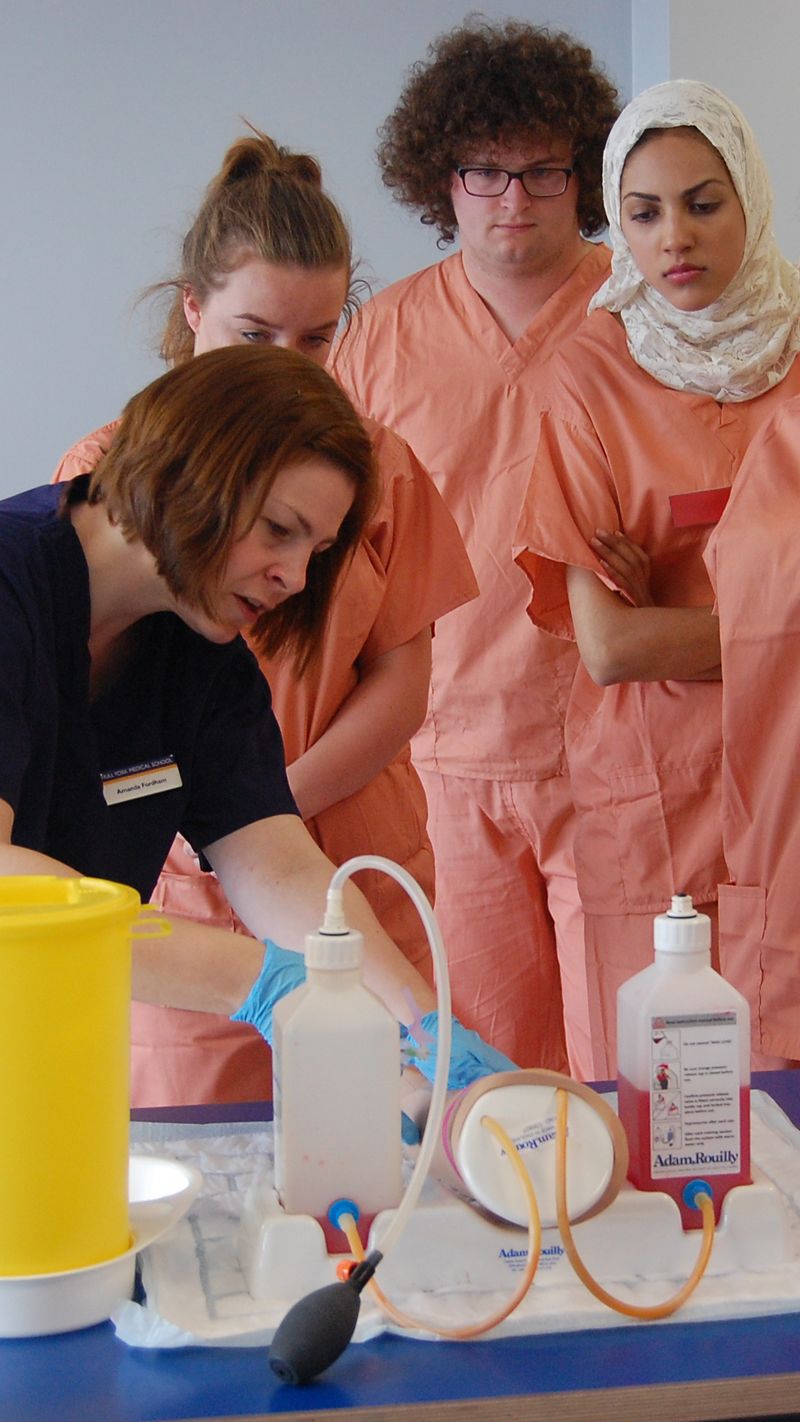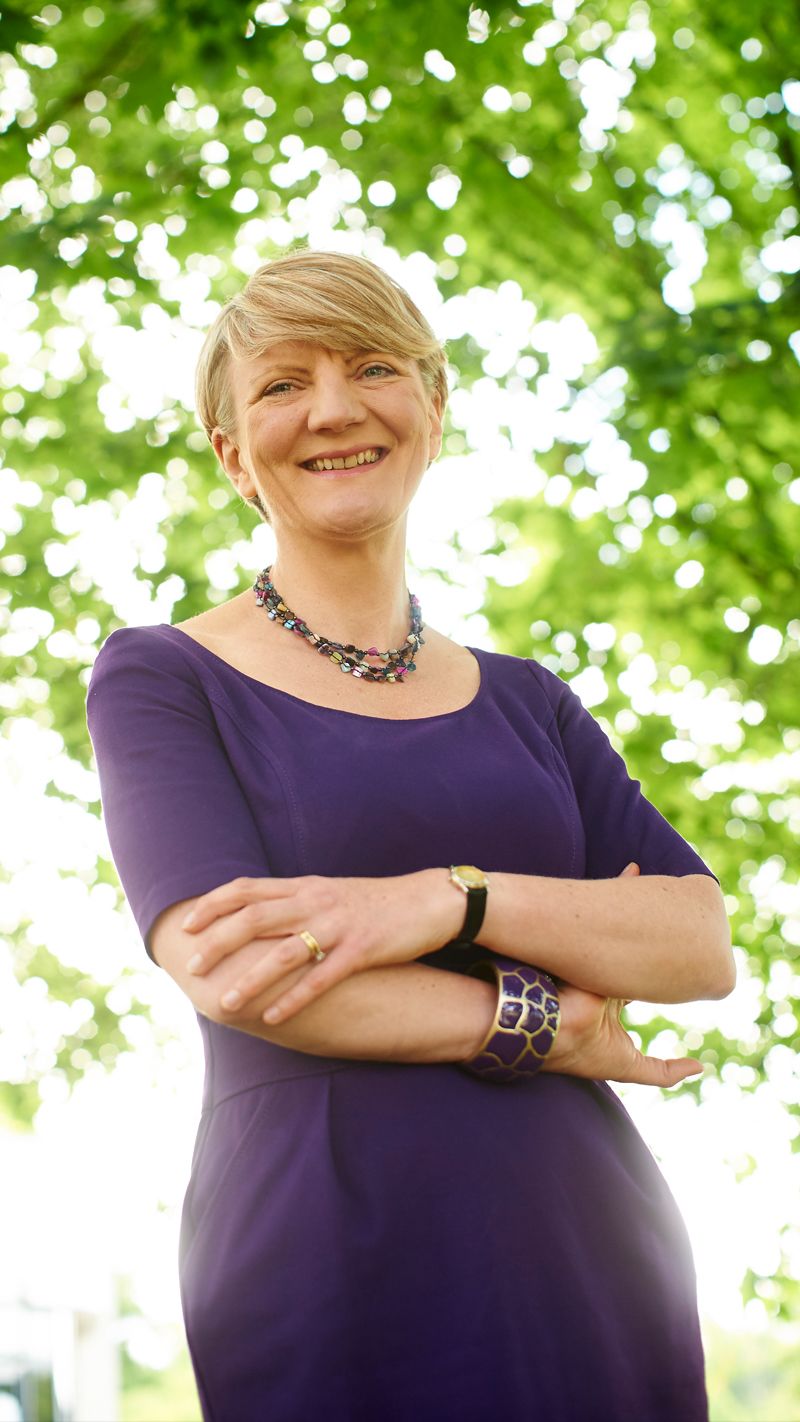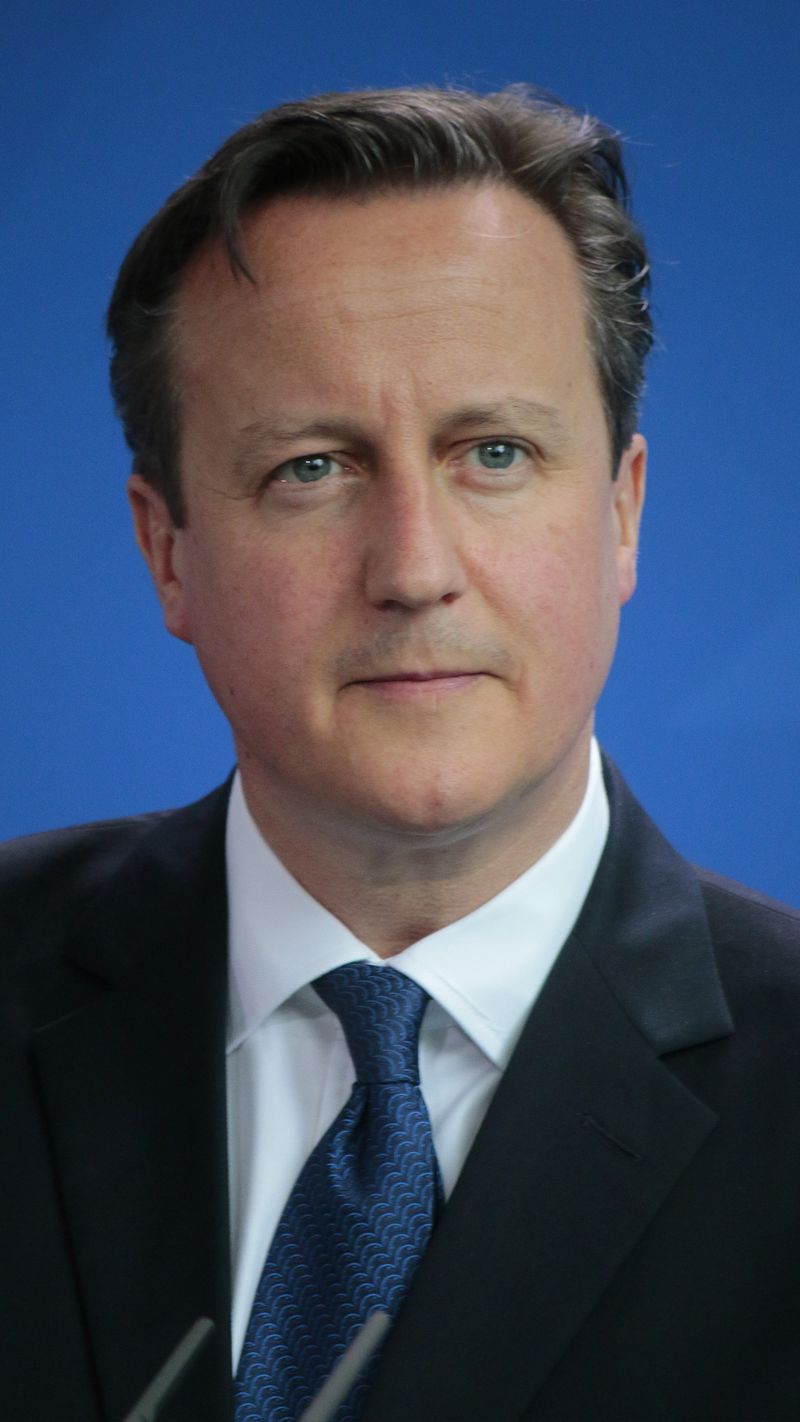The NHS at 70
Celebrating York’s role in the rise of evidence-based healthcare



Professor Alan Maynard OBE, 1944-2018, founding father of York's Centre for Health Economics
Professor Alan Maynard OBE, 1944-2018, founding father of York's Centre for Health Economics
When Danny Boyle – the creative genius behind Shallow Grave, Trainspotting, and Slumdog Millionaire – was appointed Artistic Director for the opening ceremony of the 2012 London Olympics, he knew immediately what its centrepiece would be: a love letter to the NHS.
The dancing doctors, nurses in starched uniforms and energetic children bouncing on luminous beds, might have had some in the audience feeling a little queasy, but Boyle was confident he had his finger firmly on Britain’s emotional pulse.
The NHS, after all, is one of the nation’s most cherished public institutions.
"NHS redisorganisation"
But, while Boyle was celebrating, Professor Alan Maynard was coruscating. Reflecting on one of the most turbulent years in recent NHS history – 2012 saw the introduction of the Health and Social Care Act and the creation of NHS England – the founding father of the University of York’s Centre for Health Economics (CHE) was firing incendiaries at those behind the latest round of what he famously called "NHS redisorganisation".
Earnest policymakers and daft politicians

In his article Cut the horseshit: where’s the evidence? Maynard wrote with characteristic candour: “Earnest policymakers and daft politicians create floods of un-evidenced verbal diarrhoea. This wastes resources, creating observable opportunity costs such as Lord Lansley’s barmy NHS reforms of 2012. Those reforms cost several billion pounds, thereby imposing avoidable mortality and morbidity on thousands of patients.”
Two years later, Nicholas Timmins, author of the joint King’s Fund and Institute for Government report, The World’s Biggest Quango: The first five years of NHS England, came to very much the same conclusion: “The Act proved – as it felt at the time to be – a monumental distraction to what the NHS needed to be doing.”
Maynard, who died earlier this year, just five months before the NHS celebrates its 70th anniversary, was a “window breaker” not a “glazier” according to Virginia Bottomley, one of the many Secretaries of State for Health to benefit from the emerging science of health economics at York.

Virginia Bottomley, former Secretary of State for Health, by Chris McAndrew / CC BY 3.0
Virginia Bottomley, former Secretary of State for Health, by Chris McAndrew / CC BY 3.0
Now Chancellor of the University of Hull, Baroness Bottomley says York played a crucial role in making health economics “an essential component of the understanding and delivery of health services”. During the design, creation and implementation of the NHS internal market in the 1980s, she added, York “made a tremendous impact”.
Collaborative teaching and research


From 2019, Hull York Medical School will train 220 doctors each year, having been awarded an additional 90 places
From 2019, Hull York Medical School will train 220 doctors each year, having been awarded an additional 90 places

Teaching in the Department of Economics and Related Studies
Teaching in the Department of Economics and Related Studies

Professor Karen Bloor, Research Champion for Health and Wellbeing
Professor Karen Bloor, Research Champion for Health and Wellbeing
Baroness Bottomley’s sentiment is shared by Barry McCormick, former Chief Economist at the Department of Health:
“No other department has impacted on the construction of the central pillars of health policy in the way in which CHE has managed to do, and has managed to do for a very long time.”

From 2019, Hull York Medical School will train 220 doctors each year, having been awarded an additional 90 places
Today, the University of York’s Department of Health Sciences, CHE, along with the Centre for Reviews and Dissemination and the fast-expanding Hull York Medical School, combine to form a powerful collaborative teaching and research asset for all those who work in the NHS or need its services.
Add in the health economics teaching activities of the Department of Economics and Related Studies, providing residential and distance learning courses for decades, and York makes good claim to be the undisputed go-to place for health and healthcare research and education.
Professor Karen Bloor, who is the University’s Research Champion for Health and Wellbeing, notes that York has been instrumental in changing the way decision makers think about health and healthcare, not just in the UK but around the world.
“We have introduced the language of economics to policy and practice, and with it a more rigorous way of understanding problems and developing the tools to deal with them.”
York has also educated a global cadre of health economists, and contributed to related scholarly debate in many ways, including creating the journal Health Economics. York’s thought-leadership is to be found in many major health and NHS initiatives, Professor Bloor says, including regulating the internal market, developing GP fundholding, measuring productivity, and refining hospital performance ratings, payment systems and incentive mechanisms for hospitals.

Professor Karen Bloor, Research Champion for Health and Wellbeing
The Director of CHE, Professor Maria Goddard, says York’s role in the formation of the National Institute for Health and Clinical Excellence (NICE), is a special case.
“Researchers with expertise in evidence synthesis and economic evaluation provided the crucial methodological underpinning for NICE, and were instrumental in its formation. Our research teams continue to provide evidence on the effectiveness and value for money of particular interventions, helping to improve access to efficient healthcare interventions across the country."
But we don’t have to take Professor Goddard’s word for this. Professor Sir Michael Rawlins, former Chair of NICE, confirms that York made an “extraordinary contribution” to the development of new ways of understanding the complexities of health and healthcare.
“Its contributions to the work of NICE have been so very important that I doubt we would have achieved anything without the rigour and expertise provided by CHE and its staff."
Professor Karl Atkin, sociologist and Head of the Department of Health Sciences, believes it is not only the rigour of York’s research that makes it such a crucial partner for policy makers: “We are a fiercely independent team, prepared to speak truth to power.”

It can be a very uncomfortable position to tell a major drug company that its latest product doesn’t provide value for money, or to suggest that the food and drinks industry is behaving like the tobacco lobby in denying its role in a global health problem.
“But that independence gives us credibility and integrity,” says Professor Atkin, whose own research into sickle cell disorders revealed difficult ethical issues around antenatal screening.
Effective, equitable healthcare


Former British Prime Minister David Cameron introduced the Cancer Drugs Fund in 2016
Former British Prime Minister David Cameron introduced the Cancer Drugs Fund in 2016

Take the work of the University's Professor Karl Claxton. His research revealed the damage the then Prime Minister, David Cameron, was doing to the health service with his much lauded Cancer Drugs Fund for expensive new cancer treatments.
“There is no doubt that the fund has done more harm than good for NHS patients overall. The real winners are the manufacturers, who have been able to sell their drugs to the NHS at unrealistic prices.”

Former British Prime Minister David Cameron introduced the Cancer Drugs Fund in 2016
Two years later, Professor Claxton’s withering critique was vindicated by a King’s College London and the London School of Hygiene and Tropical Medicine report which concluded that less than half the drugs provided by the fund had undergone adequate clinical trials before being used, and the average median life extension they afforded was just 3.2 months. In short, it was a 'quick-fix' election promise that wasted more than a £1bn.
Professor Goddard believes it is this rigour and independence that has led to every major committee of NICE having had one or more panel members from York since it began: proof of the value placed upon York’s contribution to the delivery of more effective, efficient and equitable healthcare. No surprise then that bibliometric analysis puts York as the only UK institution in the world top ten in health economics, alongside Harvard, Stanford and Berkeley. Or that CHE’s Queen’s Anniversary Prize for Higher Education described York as “a global leader in developing new economic approaches for national healthcare systems.”
The health costs of inequalities



But no-one is complacent. York’s army of methodological researchers – whose specialisms include statistics, economics, trials, epidemiology, qualitative social science and psychometrics – work together to address major health problems, increasingly joining forces with fundamental scientists, as well as healthcare professionals, patients and carers, to widen and deepen our understanding of health and healthcare decision making.
Professor Richard Cookson and Professor Tim Doran, for instance, are investigating the substantial socioeconomic inequalities in both life expectancy and healthcare use in England. Their work illustrates the costs of such inequalities in both human and financial terms – there are higher rates of hospital admissions, particularly emergency admissions, in more deprived neighbourhoods, and the likely costs associated with this inequality are estimated at a staggering £4.8 billion each year. Funded by the Wellcome Trust, Professors Doran and Cookson are now developing and applying methods to ‘re-engineer’ health policy research, ensuring that we assess the equity effects of policy change and public health measures.
“This research shows how interventions to reduce inequality and improve health in more deprived areas have the potential not only to improve population health but to save money for health systems,” Professor Atkin said. Such analysis would have given Professor Maynard cause for celebration, as these methods allow analysts to evaluate health interventions in terms of their impact on the distribution of health rather than on the mythical average citizen.

As Professor Maynard said in his reflections on 2012, the year of Danny Boyle’s spectacular success with the London Olympic extravaganza and Andrew Lansley’s spectacular flop with the formation of NHS England: “When well-intentioned policymakers and managers commit scarce resources to ‘improve’ the health service, the cry must be ‘where is the evidence?' Instead of believing in un-evidenced magic solutions, let’s confuse policymakers with facts.”
York is providing the facts. Let’s hope that this time, policymakers are not confused.
At York, we draw on a wide range of academic skills and disciplines to discover, refine and apply new interventions to improve health and wellbeing.
Our research involves partnerships with UK public sector organisations including the Department of Health, the NHS and social care organisations; the voluntary and community sector; and companies including pharmaceutical and device manufacturers.
Explore more of our health and wellbeing research.
Learn more about NHS70.


